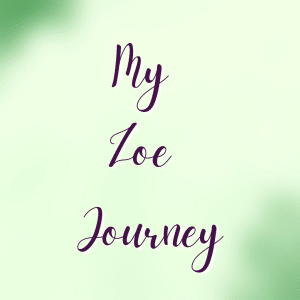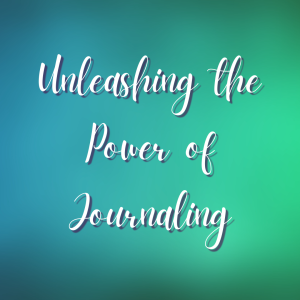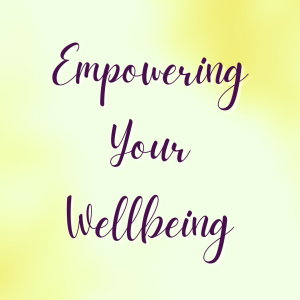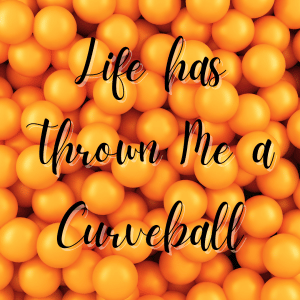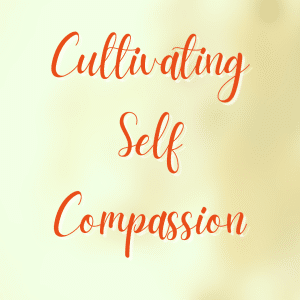 In the current climate, stress has become an inevitable companion for many. I often find myself emphasising the profound impact that self-compassion can have on overall well-being. In this blog, we’ll explore the significance of self-compassion and delve into practical exercises to nurture this crucial aspect of self-care.
In the current climate, stress has become an inevitable companion for many. I often find myself emphasising the profound impact that self-compassion can have on overall well-being. In this blog, we’ll explore the significance of self-compassion and delve into practical exercises to nurture this crucial aspect of self-care.
Understanding Self-Compassion
At its core, self-compassion involves treating ourselves with the same kindness and understanding that we would offer to a friend facing challenges. Dr. Kristin Neff, a pioneering researcher in the field, defines self-compassion as comprising three key elements: self-kindness, common humanity, and mindfulness.
Self-Kindness:
Embrace the practice of treating yourself with warmth and understanding rather than harsh self-judgment. When faced with setbacks or difficulties, acknowledge your feelings and respond with kindness, just as you would to a dear friend.
Common Humanity
Recognise that suffering and challenges are universal experiences. Understand that everyone encounters obstacles on their journey, and you are not alone in facing difficulties. This sense of shared humanity can alleviate the isolation often felt during tough times.
Mindfulness
Cultivate a non-judgmental awareness of your thoughts and emotions. Mindfulness allows you to observe your inner experience without getting entangled in self-critical narratives. It creates space for self-reflection and fosters a more balanced perspective.
The Importance of Self-Compassion
Research consistently demonstrates that practising self-compassion is associated with improved health, increased emotional resilience, and greater overall well-being. When we approach ourselves with kindness and understanding, we create a supportive inner environment that enables us to navigate life’s challenges with greater ease.
Practical Exercises to Develop Self-Compassion
Comic Strip Therapy:
Create a comic strip starring none other than yourself! Depict your challenges, but add a superhero twist—turn your flaws into superpowers. Embrace the quirks and imperfections, and watch yourself triumph in a burst of self-compassion!
Dance of the Affirmations:
Dance like no one’s watching, but this time, let your body groove to positive affirmations. Make up a funky dance routine incorporating moves that represent self-love. Bonus points for adding a catchy self-compassion anthem to your playlist! Here are some of my favourites:
- ‘Just Like Fire’ by P!nk
- “Roar” by Katy Perry
- “Don’t Stop Me Now” by Queen
- ‘Good Vibrations’ by The Beach Boys
- ‘Don’t Worry, Be Happy’ by Bobby McFerrin
- ‘I’m Still Standing’ by Elton John
DIY Self-Love Potion:
Channel your inner wizard and concoct a DIY self-love potion. Mix ingredients that represent your strengths, achievements, and happy memories. Take a sip whenever you need an instant boost of self-compassion magic! Well OK, maybe a small bucks fizz! For a grown-up non-alcoholic drink I do like the Gin Zero and a little light Fever Tree Tonic.
Mirror Pep Talk Olympics:
Turn mirror pep talks into a sport! Stand in front of the mirror, and with enthusiasm worthy of an Olympic commentator, cheer yourself on for the day’s achievements. Award yourself imaginary medals for self-compassion prowess.
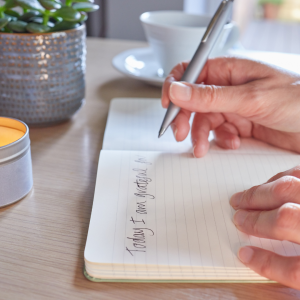 Emoji Emotion Journal:
Emoji Emotion Journal:
Express your daily feelings using emojis in a creative emotion journal. Illustrate your self-compassion journey through a visual diary of smileys, hearts, and even the occasional dancing pineapple. It’s like a fun, personalized emoji movie of self-love!
Gratitude Graffiti Wall:
Transform a wall (or a piece of paper) into your gratitude graffiti masterpiece! Write down things you love about yourself, moments of self-compassion, and achievements. Add doodles, colours, and glitter—because self-compassion should sparkle! I’m on a temporary glitter hiatus at the moment though. 40 Christmas cards later, all with glitter. It keeps turning up all over the house. Mind you, it makes the duster sparkle after dusting the rooms!
Karaoke Kindness:
Pick your favourite uplifting song and turn it into a karaoke session. Belt it out with passion, and remember, in this performance, you’re the rockstar of fun-loving self-compassion!
Fantasy Compassion Island:
Close your eyes and imagine your very own Compassion Island. Picture serene beaches of self-love, confidence mountains, and rivers of resilience. Take a mental vacation to this magical place whenever you need a boost of self-compassion.
Remember, self-compassion doesn’t have to be serious—it can be a playful and joyful adventure!
In the journey toward optimal well-being, self-compassion is an invaluable companion. By embracing self-kindness, recognising our shared humanity, and practicing mindfulness, we create a resilient foundation for navigating life’s ups and downs. I encourage you to integrate these exercises into your daily routine and witness the transformative power of self-compassion in enhancing your overall quality of life.
For more hints and tips and also an insight into my daily routine of Self-Compassion and Lasting Wellbeing, do take a look at my Instagram, where I share some of my routines on video.

